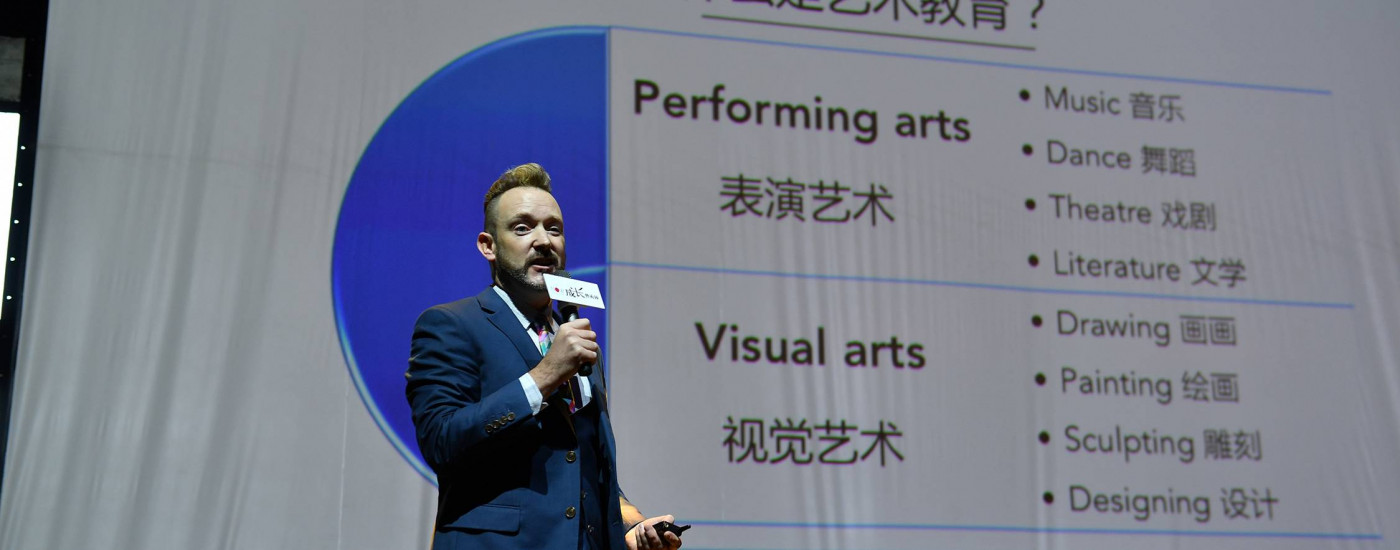The Importance of Arts Education

At Dulwich College Shanghai Puxi we offer a holistic education that equips our students with skills for lifelong success. A core element of this comes from our varied and rigorous arts programme. The vibrant arts culture of visiting professional arts practitioners, performances and events is carefully planned to develop and enhance not only the co-curricular life of the school, but also the academic curriculum. On Saturday, 31 October, Mr Tony Pickhaver, Deputy Head of Primary, presented our art philosophy at NOW Festival. Below is the recap of his speech on the festival.
An Arts education is a must for future generations. Research in neuroscience has accelerated over the last thirty years and although there is still much more to learn about the human brain, we now know more than ever before about the formation of neuropathways during childhood and how the brain works. In 2014, The Education Endowment Foundation in the UK compiled evidence from a series of research projects about the arts and the impact it has on brain development. Similar studies have taken place in the USA. For primary aged pupils, there is a positive correlation between music training and visuo-spatial and motor co-ordination. In learning to play a musical instrument, the same neural networks are built that are used to complete numerical and mathematical tasks. Creative drama has been shown to have an impact on reading and when the arts are integrated into the curriculum, students have a greater emotional investment in their classes. The arts have favourable effects on cognitive abilities, self-esteem and social behaviour.
What about STEM related skills? Many people believe that it is more important to focus time and energy on the more traditional disciplines of Maths and Science rather than the arts in order to secure a ‘top job’. However, if you look to research from some of the world’s leading companies at the moment, you might be surprised. As Miss Ivey shared in her recent Secondary School Assembly, Google’s research into the skills and qualities of its top employees found that STEM skills did not even make it into the top seven. The softer skills of empathy, communication and coaching were more important for the ‘top jobs’. STEM skills are vital to the world we live in today, but technology alone, as Steve Jobs famously insisted, is not enough. “We desperately need the expertise of those who are educated to the human, cultural, and social as well as the computational.”Dulwich College Shanghai Puxi prides itself in both its academic rigour as well as the rich opportunities it offers students in its performing arts programmes. The legacy of Dulwich’s founder, Edward Alleyn, continues to live on with our diverse range of opportunities for students to embrace the expressive, relational and cultural dimensions of the arts. In the words of David Sousa, an Educational Consultant in the USA and the author of How the Brain Works, “The arts play an important role in human development, enhancing the growth of cognitive, emotional, and psychomotor pathways. Schools have an obligation to expose children to the arts… Learning the arts provides a higher quality of human experience throughout a person's lifetime.”
To read more about our philosophy on the Arts, please click here to read our recent article from Senior School Leader of Learning and Arts teacher, Ms. Sneath.





